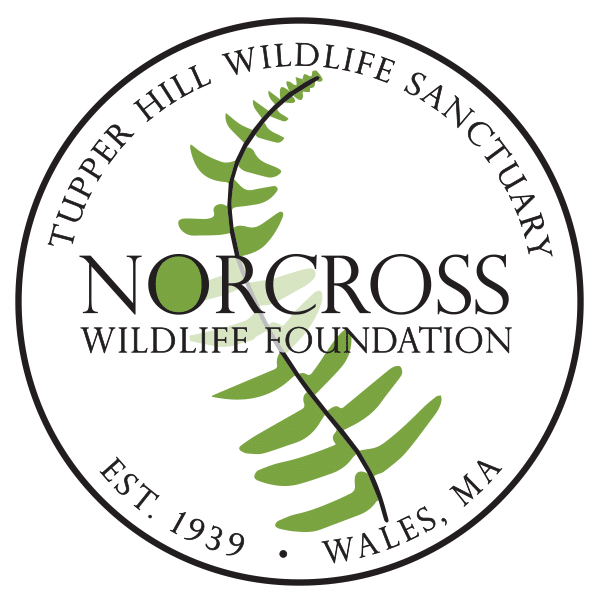The Norcross Wildlife Foundation does not rehabilitate injured wildlife. We are unable to accept any animals for care as we are not licensed rehabilitators.
What is a Wildlife Rehabilitator?
Wildlife rehabilitators provide care and rehabilitation to injured, orphaned, or sick wild animals. In Massachusetts, these individuals and organizations work to ensure that wildlife in distress receives the necessary attention and, whenever possible, is returned to the wild.
How to Contact a Wildlife Rehabilitator
If you come across a wild animal that you believe needs assistance, it is important to contact a licensed wildlife rehabilitator quickly. These individuals have the necessary permits and expertise to handle wildlife legally and safely.
The list of licensed Massachusetts rehabbers can be found here: https://www.mass.gov/info-details/find-a-wildlife-rehabilitator.
Information regarding licensed wildlife rehabbers in Connecticut can be found here: https://portal.ct.gov/deep/wildlife/rehabilitator/dealing-with-distressed-wildlife.
Please note: you cannot legally transport wild animals across state lines. If you find an animal in Massachusetts that needs a wildlife rehabber, you must contact a licensed rehabber in Massachusetts.
Keep in mind that most wildlife rehabilitators do not rehab as a full-time job. They are volunteers who use their own money and time to rehabilitate wildlife. They may not answer your phone call or respond as quickly as you would hope. We recommend contacting multiple rehabbers if you need assistance. They will respond as soon as they can.
What to Do If You Find a Wild Animal in Need
If you encounter a wild animal that you think needs help, your first step should be to assess the situation from a safe distance. Not all animals need human intervention; some may simply be resting or in the process of learning survival skills from their parents; however, if the animal is visibly injured or in a dangerous situation, it may be time to act.
- Do not attempt to handle the animal: wild animals, injured or not, can be highly stressed and may carry diseases. Handling them without proper instruction can be dangerous for both you and the animal.
- Observe and collect information: note the animal’s behavior, condition, and exact location.
- Contact a rehabilitator: use the resources provided by MassWildlife (or similar search platform in your state) to find and contact a licensed rehabilitator. Provide them with the details you have collected.
- Follow professional guidance: the rehabilitator may ask you to monitor the animal or, in some cases, transport it to a safe location. Always follow their advice and never attempt to care for the animal on your own.
Remember, the goal is to ensure these animals receive expert care that maximizes their chances of survival and a successful return to the wild. Never attempt to care for or hand-raise a wild animal in your home.
If you have specific questions about native wildlife not pertaining to injury or rehabilitation, you can reach out to Caroline Cay Adams, Director of Education, via email at cadams@norcrosswildlife.org or via phone at 413-245-1264, ext. 104.

